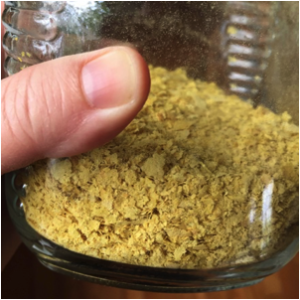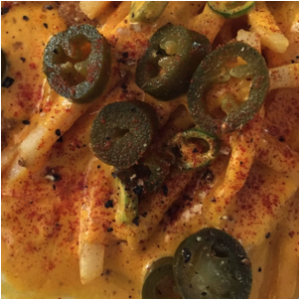 Jack Jetstark’s Intergalactic Freakshow is about the people who don’t fit in. The freaks who are too much like this or not enough like that for society to accept them.
Jack Jetstark’s Intergalactic Freakshow is about the people who don’t fit in. The freaks who are too much like this or not enough like that for society to accept them.
I write from experience. I may not breathe fire or fly or read minds, but I am disabled. And a woman geek. And “too smart for my own good,” according to multiple teachers and psychologists. Somewhere between the first and final draft of this book, though, I realized I have another thing that makes me different.
I’m autistic.
In retrospect, it shouldn’t have been a surprise. I didn’t talk outside the home until I was thirteen, I’ve always hated eye contact, and there may have been a period in my childhood where I communicated primarily through meowing.
But I was disabled and homeschooled and so no one caught it. I was just “weird” or “difficult” or, more often than not, “no seriously, you do not want to screw with her Froot Loops, she just got them sorted by color.” If I’d been diagnosed at an earlier age, maybe I would have felt less weird, less like I was doing something wrong, but it is what it is.
(Technically, I can’t get a formal diagnosis because of accessibility barriers and because the diagnostic process is not designed for disabled adults who were raised as extremely sheltered, antisocial females, but my therapist is confident that I am autistic and I am identifying as such from now on.)
So there I am, 28, newly diagnosed as autistic… oh, and working on the final drafts of my novel. And suddenly some of my editor’s revision notes made so much more sense.
She said some of the characters acted in ways that weren’t true to themselves. I now see that one of these instances (the ending) was the result of me trying to write a really emotional scene and getting frustrated and choosing the logical (to me) solution. Another entire subplot ended up getting rewritten because, in a nutshell, my characters had more complex social lives than I could deal with.
When she asked me to add more descriptions of my characters, such as the clothes they wear or how they interact with objects, I was flummoxed. Beyond gender and race, I didn’t know what they looked like, and nonverbal communication goes right over my head.
I’ve since realized that it’s not uncommon for autistics to have trouble distinguishing facial features. Until I’m a few seasons into a TV show, or I’ve known a person for a few months, I have to rely on context to tell me who they are. (I… may have stopped watching The Expanse the first time Thomas Jane took off his hat, because he was the only character I could recognize.)
These weren’t new problems in my writing, but it’s harder to work around them when writing a novel versus a short story. It’s vital that readers stick with you for two hundred and forty pages.
Figuring out that I’m autistic, letting myself embrace that label, was empowering, both in my writing and in everyday life. I’m not just bad at characterization and socializing, I have a condition that makes those things harder than they should be, and knowing that means I can start trying to find the “cheat codes” for my brain.
People like to know what characters look like, so I’ll ask friends who aren’t faceblind for recommendations of nice-looking people, and I’ll cast them as my characters, and I’ll trust everything my editor says on them making realistic decisions. But I don’t alter my writing too much in the grand scheme.
I would never want to be — or even pretend to be — neurotypical. I’m autistic and weird and my writing is, too.
About the Author:
 Jennifer Lee Rossman is an autistic and disabled sci-fi writer and editor who describes herself as “If Dr. Temperance Brennan was a Disney Princess.” Her work has been featured in several anthologies, and she co-edited Love & Bubbles, a queer anthology of underwater romance. She blogs at jenniferleerossman.blogspot.com and tweets @JenLRossman
Jennifer Lee Rossman is an autistic and disabled sci-fi writer and editor who describes herself as “If Dr. Temperance Brennan was a Disney Princess.” Her work has been featured in several anthologies, and she co-edited Love & Bubbles, a queer anthology of underwater romance. She blogs at jenniferleerossman.blogspot.com and tweets @JenLRossman
Enjoy this writing advice and want more content like it? Check out the classes Cat gives via the Rambo Academy for Wayward Writers, which offers both on-demand and live online writing classes for fantasy and science fiction writers from Cat and other authors, including Ann Leckie, Seanan McGuire, Fran Wilde and other talents! All classes include three free slots.
If you’re an author or other fantasy and science fiction creative, and want to do a guest blog post, please check out the guest blog post guidelines.










 Author: E.D.E. Bell was born in the year of the fire dragon during a Cleveland blizzard. With an MSE in Electrical Engineering from the University of Michigan, three wonderful children, and nearly two decades in Northern Virginia and Southwest Ohio developing technical intelligence strategy, she now applies her magic to the creation of
Author: E.D.E. Bell was born in the year of the fire dragon during a Cleveland blizzard. With an MSE in Electrical Engineering from the University of Michigan, three wonderful children, and nearly two decades in Northern Virginia and Southwest Ohio developing technical intelligence strategy, she now applies her magic to the creation of 
One Response